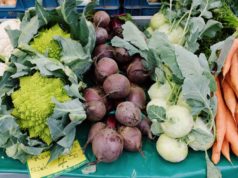It is evident that an increasing number of people are making the decision to go vegan, seeing as how this lifestyle is becoming increasingly popular.
There are excellent reasons behind this, as veganism can improve our lives in many ways: it is healthy, it’s less harmful to our environment and it can even be seen as the more moral choice. With a wide array of benefits, learning a bit more about veganism is the least you can do.
What is it?
People tend to mix-up veganism with vegetarianism and the majority of those who know that the two aren’t the same don’t really know the exact differences. Although, like vegetarianism, veganism focuses on abstaining from eating animal meat, vegans do not use any animal products whatsoever, particularly in diet, but also as a general life philosophy. This has a huge number of benefits, dietary and otherwise, which we’re about to get into.
Dietary benefits:
Usually, the term “veganism” tends to be associated with eating habits, despite the fact that it is so much more. A vegan diet is actually one of the healthiest ways to live. All plant-based diets contain plenty of fresh fruits, veggies, beans, whole grains, legumes, nuts and seeds.
Vegan foods have a tendency of being higher in vitamins, minerals, phytochemicals and fiber than regular food. Abundant in vitamins B1, C and E, folic acid, magnesium and iron, a vegan diet is not only healthy, but is also an excellent way to shed weight, seeing as how these foods are low in calories.
Health benefits:
A vegan diet has a number of benefits in terms of reducing the risk of mortality from a variety of illnesses that include type 2 diabetes, cardiovascular disease, ischemic heart disease, stroke, hypertension, obesity and even some forms of cancer, such as prostate and colon cancer.
Perhaps the best part about a vegan diet is outlined in the fact that it is healthy for anyone of any age, from children and middle-aged people, to pregnant women, lactating women and the elderly.
However, it’s crucial that vegans pay special attention to their food intake, in order to avoid particular nutrient deficiencies. A vegan diet should be well-planned and carefully monitored, which might sound tedious, but knowing what you’ve eaten and planning your meals is actually a great thing.
Environmental benefits:
No vegan should underestimate meat as food – at some point, it was necessary to our survival; without meat, we probably wouldn’t be here as a species. On the other hand, our environment won’t be able to endure the current level of food production for much longer.
In addition to being morally unacceptable, breeding, raising and feeding animals solely for the purpose of turning them into human food is simply inefficient. Here’s how it works: animals that are raised for food production are actually fed over half of all of the world’s crops, which is incredibly bad rationing, as humans can use these just as well.
Additionally, leading a vegan lifestyle transcends food. It’s focused on taking care of our planet, on using eco-friendly beauty products, being mindful of the animal life and many other important green aspects. By not using animals for breeding purposes, even the global rainforests can benefit – as our population grows, the global need for animal meat follows in suit, meaning an increased need for arable land, which increases deforestation.
Why arguments against veganism aren’t valid:
Veganism is among the most controversial modern subjects for a relatively simple reason: if you understand it – you’ll go vegan; you can’t really support the initiative and not be a part of it. There are many arguments for veganism. For one, following a plant-based diet is healthy for our bodies and the environment.
These days there really are no reasons for animal products of any sorts – from sustenance, to clothing or shelter, we can use other materials. Next, the amount of resources that we are wasting nowadays is a growing concern that needs to be addressed. Lastly, our hunter-gatherer days are over – we’ve evolved, there is no need to produce vast quantities of animal products anymore!
Essentially, leading a vegan lifestyle is an environmentally-smart decision to make, even without all the health and dietary benefits involved. Veganism is the way of the future, the only question that remains is when we’ll all choose to embrace it.












